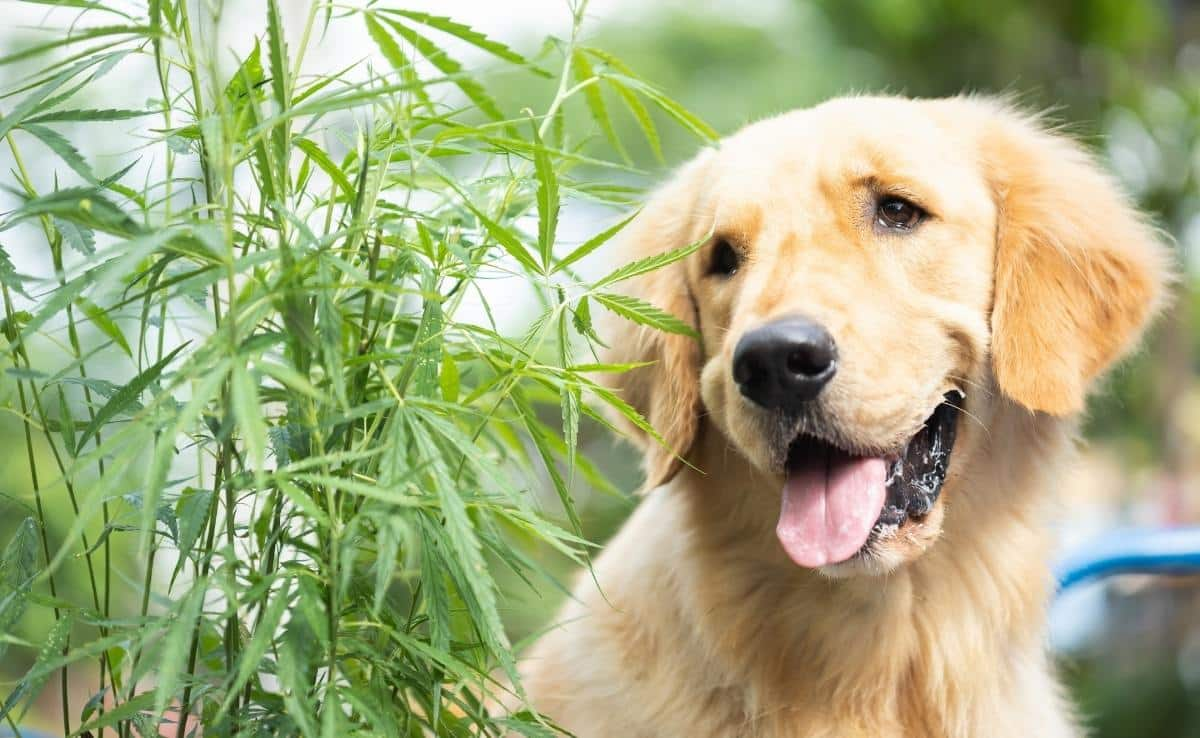Culture
Can Your Pet Get High?
Are you curious about the effects of cannabis on animals? Have you ever wondered if your pet can get high? Exploring the effects of cannabis on animals is a fascinating and important topic to discuss. From cats and dogs to horses and birds, many of our beloved pets can be interact with cannabis.
Some may experience the same or similar effects to humans, while others may experience different effects. In this article, we’ll discuss the various effects of cannabis on animals, and what you should know if you’re considering using it with your pet. We’ll also cover the risks with cannabis use in animals. As well as what you should do if your pet gets high. So, if you’re curious about how cannabis can affect your pet, read on to find out more!
What is Cannabis?
Cannabis is a plant that contains a variety of compounds known as cannabinoids. These compounds work with the body’s endocannabinoid system to produce a variety of effects.
The two most well-known cannabinoids are THC (tetrahydrocannabinol) and CBD (cannabidiol). THC is the compound responsible for the psychoactive effects of cannabis, while CBD is a non-psychoactive compound that provides many of the therapeutic benefits of cannabis.
Cannabis can be consumed in many forms, including smoking, vaping, eating edibles, and using topical products. Each form of consumption will have different effects, depending on the strain and potency of the cannabis.
Different Effects of Cannabis on Animals
The effects of cannabis on animals vary depending on the species, size, and age of the animal, as well as the form and potency of the cannabis. Generally, animals seem to experience the same or similar effects as humans, including relaxation, sedation, increased appetite, and increased sociability. In some cases, animals may become more active and energetic, while in others they may become more lethargic and sedated.
As with humans, cannabis can lead to anxiety and paranoia in animals. Additionally, animals can become disoriented and may have difficulty finding their way home.

What Types of Pets Can Get High?
Cannabis can affect any type of animal, including cats, dogs, horses, birds, and even reptiles and amphibians. In general, mammals seem to be more sensitive to the effects of cannabis than other types of animals. Additionally, larger animals may be more sensitive to the effects of cannabis due to their larger body size.
Risks of Cannabis Use in Animals
Although cannabis can have beneficial effects for animals, it can also be dangerous and can lead to serious health problems. The biggest risk of cannabis use in animals is toxicity. If an animal ingests too much cannabis, it can lead to serious side effects, including vomiting, lethargy, and even death. Additionally, cannabis can cause long-term health problems. Such as, liver and kidney damage, if it is in large quantities or over a prolonged period.
Cannabis can also have mental health effects on animals. Animals that have large doses of THC can experience anxiety and paranoia. Additionally, some animals may become aggressive or unpredictable when they interact with cannabis.
What Should You Do If Your Pet Has Been Exposed to Cannabis?
If you suspect that your pet has been exposed to cannabis, it is important to seek medical attention as soon as possible. Your veterinarian can provide you with information about the best course of treatment for your pet.
If your pet has ingested cannabis, it is important to be aware of the signs of toxicity. These include vomiting, lethargy, disorientation, and excessive salivation. Additionally, be aware of any changes in behavior, such as increased aggression or anxiety. If you notice any of these signs, seek medical attention immediately.
How to Treat Pets That Get High
The treatment for cannabis exposure in pets will depend on the amount of cannabis ingested and the symptoms that the animal is exhibiting. If the animal has ingested a large amount of cannabis, it is important to seek medical attention immediately.
If the animal is exhibiting signs of toxicity, your veterinarian may recommend administering activated charcoal or other medications to help reduce the absorption of the cannabis. Additionally, they may also recommend administering IV fluids to help flush the cannabis out of the animal’s system.
In some cases, the animal may need to go to the hospital for further monitoring and treatment. Your veterinarian will be able to advise you on the best course of action for your pet.

Conclusion
Cannabis can have a variety of effects on animals, depending on the species, size, and age of the animal, as well as the form and potency of the cannabis. In general, animals seem to experience the same or similar effects as humans, including relaxation, sedation, increased appetite, and increased sociability. Additionally, cannabis can lead to anxiety and paranoia in animals.
If you suspect that your pet has been exposed to cannabis, it is important to seek medical attention as soon as possible. Your veterinarian can provide you with information about the best course of treatment for your pet. Additionally, be aware of the signs of toxicity, such as vomiting, lethargy, and disorientation.
Overall, cannabis can be a beneficial and therapeutic treatment for animals. However, it is important to be aware of the risks with cannabis use in animals. Please Seek medical attention if your pet has been through cannabis exposure.

